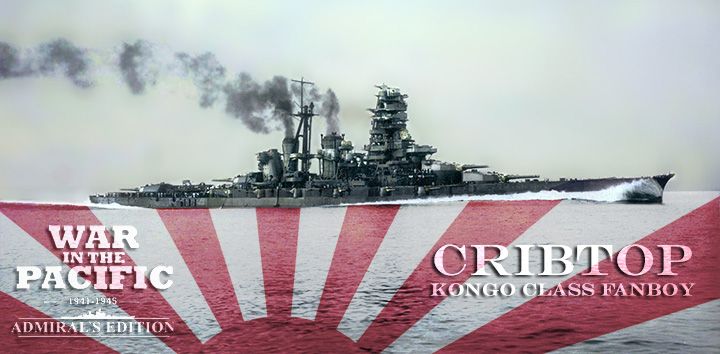crsutton
Posts: 9590
Joined: 12/6/2002
From: Maryland
Status: offline

|
quote:
ORIGINAL: Canoerebel
(I am interested in your opinions - rather than opinions from the "General" Matrix forums - because I know most of you and therefore know the reliablity of what you might post).
Who do you think was most culpible for the Confederate defeat at Gettysburg?
Shortly after the war, Jubal Early blamed Longstreet for failing to move with alacrity on the right flank on the second day of the battle.
A bit later, Longstreet had some pretty harsh criticism of Lee in choosing to fight an offensive battle when the circumstance, so Longstreet thought, called for a defensive battle.
Today, I think the weight of opinion is that Ewell carries the most blame in failing to attack the Union left on Cemetery Hill at the close of the first day.
We just received a manuscript at the magazine I work for intimating that Jubal Early is most culpable. This caught me by surprise and I'm trying to figure out if the writer has a legitimate theory. He says Early failed miserably in attacking Cemetery Hill on day two. But I've always felt that Early had a nearly impossble task - assaulting a well-dug-in enemy on the high ground.
Do any of you guys think Early is at fault? Or do you think that's a real stretch?
If not Early, who then? (I say Ewell, but that may be a shallow adoption of a commonly accepted but not necessarily well thought out theory).
Canoe, my two cents for what it is worth,
Early did not lose the battle on the 2nd day. Simply because the battle probably could not have been won on the 2nd day. I know there are a lot of what ifs about the Round Tops, Sickle's mistake, and the attack on Culps Hill. But the fact is a good but weaker Confederate Army was attacking a veteran Union Army that had superior artillery, better ammunition, good and fresh cavalry protecting its flanks and equal number of troops at the beginning of the day and superior numbers by the end of the day. And that Union army was an an excellent defensive position holding interior lines with a better supply flow. Even if on the outside chance that the Union army was completely driven from that position it is doubtful that the Confederate army had the reserves, cavalry strength or ammunition to make much of it. It would have had to end in a total Union rout and given lack of Confederate reserves, cavalry and the shorage of ammo, I doubt that could ever have happened. For this reason, the blame for the loss can only go to the participants of the first day, who in my opinion were the only participants who had a decent chance to win a decisive battle for the Confederacy. Day 2 and 3 were only a foregone conclusion.
Longstreet was a good field commander and had his qualities. However, his strategic vision was narrow and limited. His fantasy about marching around the Union army's flank was the height of lunacy in my mind and apparently Lee's. This was not Chancellorville and to think that a smaller army in hostile territory with only a small number of inexperienced cavalry, limited provisions and ammunition and a major river between it and friendly territory-not to mention encumbered by a large train and thousands of wounded from the first day's fighting could do this was insane. The risk would have been too great and failure would have been nothing less than disaster. Meade was a cautious man but he was no fool and a proven general who was not afraid of a fight. I don't blame Lee. He knew that his options were to attack and win or retreat. There was no other option open to him. I think he was fully aware of the odds on the 2nd and 3rd day but felt he had little choice.
Much is made of Stuarts arrival late in the 2nd day but Stuart's cavalry arrived on the field completely blown. Deep in enemy territory, he had no access to fresh remounts while Montgomery Meigs (unsung hero) kept an ample flow of remounts moving up to the Yankee cavalry. In a campaign of manuever the Confederate cavalry would have only grown weaker each day while the arguably superior Union cavalry would have remained relatively fresh.
Simply put, I think the battle could have only been won on the first day. And considering Yankee reserves, I am even doubtful that a victory on the first day would have led to a sucessful conclusion to the campaign for the Confederacy.
I am a Southern boy and love my rebs but lets be realistic here. In the words of Shelby Foote the North was fighting the South with one had behind its back. The South was trying to beat an industrial powerhouse that had the confidence to begin building the transcontinental railroad while fighting a major war! I don't think the South ever had much of a chance. But whatever slim chance exsisted ended when Grant took Vicksburg. At that point, I don't think Gettysburg mattered any more.
_____________________________
I am the Holy Roman Emperor and am above grammar.
Sigismund of Luxemburg
|
 Printable Version
Printable Version













 ). There is a longstanding practice in the good ol' USA of intersectional and inter-state rivalry and harrassment. I poke fun at the New York Yankees. John Dillworth would reciprocate by poking fun at the Atlanta Braves. I "harrass" Minnesotans and Bullwinkle might respond by dissing Georgians. All of this is normal and healthy and fun...as long as it's meant that way, which it almost always is.
). There is a longstanding practice in the good ol' USA of intersectional and inter-state rivalry and harrassment. I poke fun at the New York Yankees. John Dillworth would reciprocate by poking fun at the Atlanta Braves. I "harrass" Minnesotans and Bullwinkle might respond by dissing Georgians. All of this is normal and healthy and fun...as long as it's meant that way, which it almost always is. 









 New Messages
New Messages No New Messages
No New Messages Hot Topic w/ New Messages
Hot Topic w/ New Messages Hot Topic w/o New Messages
Hot Topic w/o New Messages Locked w/ New Messages
Locked w/ New Messages Locked w/o New Messages
Locked w/o New Messages Post New Thread
Post New Thread